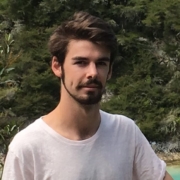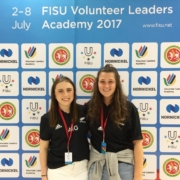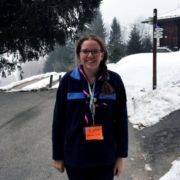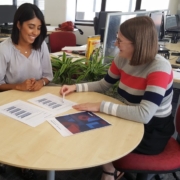University and Tertiary Sport NZ – Liam’s Bio
Liam Hurst is a Massey University Bachelor of Sport and Exercise graduate. Much of Liam’s volunteering activity stems from his passion for sport and conservation. At high school, Liam began helping the Kiwi Conservation Club, planning trips and activities for children and family groups in the outdoors. Sporting-wise his management and organisation skills have been used in jobs as varied as marshalling and traffic control to timekeeping, social media planning, volunteer recruitment and coaching. Much of his work has been for high schools competing in national secondary schools tournaments and his university. His involvement has benefitted road cycling, adventure racing, volleyball and football to name a few sports.
As a high school student what made you put your hand up to get involved in conservation causes?
My family had a large influence on my participation in conservation. When I was young I spent a lot of time in the outdoors and regularly went tramping and camping which helped to develop my passion for the environment and conservation.
What is your favourite volunteer activity and why?
I love volunteering at sport events. Especially helping out at secondary school competitions, in particular, adventure racing. I get a buzz out of being able to coach and guide people to be able to map read, abseil, kayak, mountain bike or anything else that they need.
What’s your favourite organisation that you have volunteered for and why?
Cycling New Zealand. As a part of my university degree, I had a placement helping organise the 50th anniversary of the NZ Schools Road Cycling Champs. I had a major role in the competition and was able to really immerse myself in the management of the event. I learnt a lot about the practical delivery of my event which directly related to my degree.
So, why give up so much of your free time to enable sporting events for others? What’s in it for you?
The satisfaction of knowing you helped out at an event or competition is what really drives me. I enjoy being able to help people accomplish their goals and if that makes them happy, then I’m happy!
When it’s wet or cold or you face event issues or team crises, do you wish you had said no to helping? What fuels you?
It’s very rare for everything to go to plan, so when things go wrong you just have to take a deep breath and remind yourself that bad things don’t last forever. I never really feel like I should’ve said no but that’s not to say I haven’t had my fair share of difficult situations. Looking back on them I realise that they were great learning points and have enabled me to develop myself to be a better, more experienced person.
Can you recall and describe a moment where you thought ‘this is all totally worth it’?
Guiding junior teams in adventure races is extremely rewarding. Not only because they are able to accomplish something amazing by completing a race, but also because of the landscape, views and memories that you get to experience during a race. There was one race where we made it up onto the top of a mountain range and the view was incredible. It’s times like these that remind you why you do it.
If you were to pitch the skills you’ve learned through volunteering to a potential employer what would you say?
I have learned a lot through volunteering. Communication skills, time management, sponsorship proposals, safety planning, people management, teamwork, leadership. The list goes on!
This is a chance to communicate with people around NZ who perhaps haven’t volunteered before – what is your takeaway message for them?
Honestly, just do it. Find a sport or event that interests you, maybe grab a few friends and sign up! You won’t regret helping other people and you never know what you’ll get out of it. You’ll meet new people, learn new skills, and it looks great on your CV!








